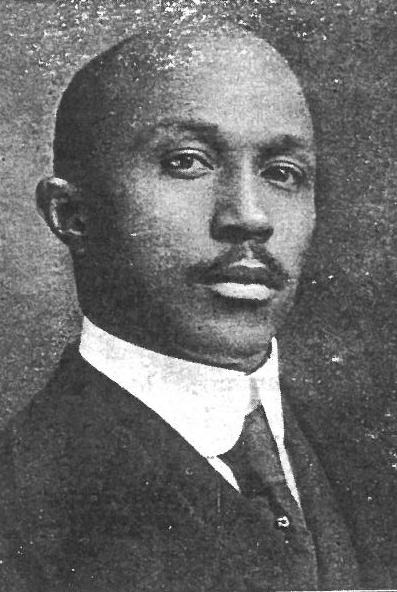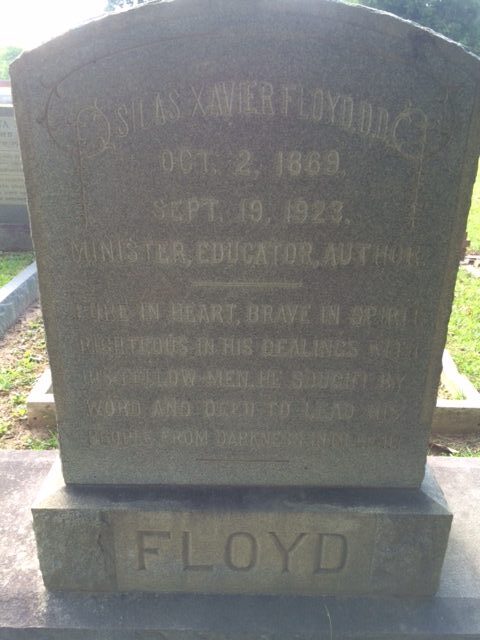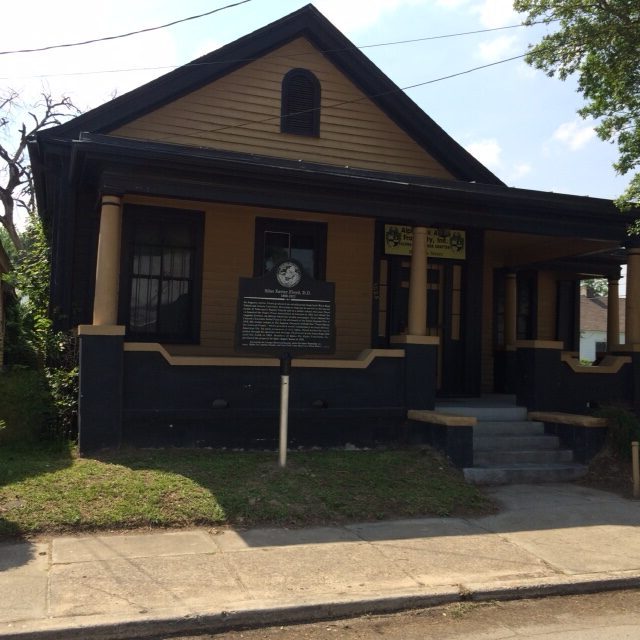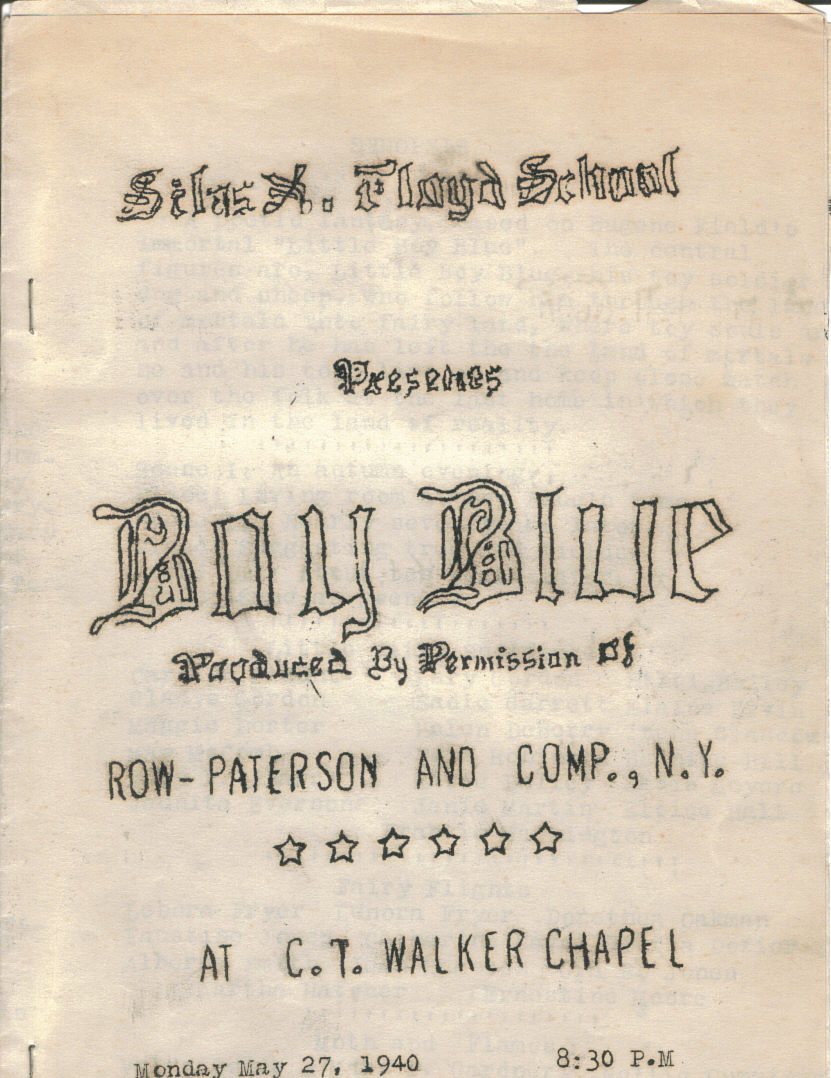Reverend Silas Xavier Floyd
The Augusta Chronicle referred to him as the “Paul Lawrence Dunbar of the South”. Reverend Charles Thomas Walker, the founder of Tabernacle Baptist Church, called him his right-hand man. In 1902 the American Academy of Political and Social Sciences named him only the fourth African-American to join their ranks. He served as a field worker for the International Sunday School Convention. The Reverend Silas Xavier Floyd was all of the aforementioned and much more. He became a voice for an entire community for over a generation. He prescribed to the tenets of Booker T. Washington, a believer in hard work, thrift and land ownership, yet was motivated by the doors that a formal education would open. Reverend Silas Xavier Floyd was a man of the cloth, educator, administrator, historian, editor, poet; an individual that kept his finger on the pulse of what was going on within Augusta’s black community and how blacks in general should progress in a post-slavery society.
Silas Xavier Floyd was born in Augusta, Georgia on October 2, 1869 to David and Sarah Jane Floyd. His parents migrated to Augusta after emancipation and settled in an area known as Old Town. In examining the life of his father David it becomes clear where many of Silas’ traits emanated from. After graduating from Ware High School, Silas would further his education at Atlanta University, graduating valedictorian in 1891. Many years later he would receive an honorary Doctorate of Divinity degree from Morris Brown College in 1902.
To remark that Reverend Silas Xavier Floyd was a man that wore many hats can be categorized as an understatement in the truest sense. In fact he embarked in a series of endeavors during his lifetime and in every arena performed with a professionalism and keen understanding unmatched by most of his generation. The author of the History of the Walker Baptist Association said of Floyd, “Sift if you please the whole army of eminent men which the race has produced since the days of slavery, and it is only here and there that a man looms up that can compete with the average along several lines of human endeavor. The record made by the subject of this sketch along literary lines, has not been excelled or hardly equalled by any Southern negro writer of his age, opportunity and position, who was not at the outset heir to a great name.” In fact, Reverend Floyd seemed to have the ability to clone himself when it came to his various pursuits in and around the Augusta area and in many cases the state of Georgia.
Indeed one of his many passions was that of editor. On December 26, 1892, at the behest of Reverend Floyd, editors from all over the state met in Augusta to establish the Negro Press Association of Georgia. Among the many things they called for was capitalizing the word “Negro” and refraining from using the word “colored”. Reverend Floyd would also serve as editor of the Augusta Sentinel, a newspaper established by his Ware High School principal, Professor R.R. Wright, and was a magnet for many of Georgia’s best and brightest, to include his mentor Reverend C.T. Walker and the noted historian and pastor of First African Baptist Church in Savannah, Reverend Emmanuel K. Love. He also served as the social editor of the Georgia Baptist publication, established by Reverend William Jefferson White, the founder of the Augusta Baptist Institute.
As an author Reverend Floyd pinned numerous books during his lifetime. In 1902 The Life of Reverend C.T. Walker, D.D. was published. It gave a detailed account of his friend and mentor, Reverend Walker, from his strong Baptist lineage coming out of Franklin Covenant Baptist Church in Hephzibah, Georgia, his world travels in 1891, his rise as a national religious figure in the 1890’s and his move to New York to pastor Mt. Olivet Baptist Church in 1899. Reverend Floyd published a book of sermons titled The Gospel of Service and other Sermons, which became the first book of sermons by an African-American ever published by the American Baptist Publication Society. In 1905 he published a children’s book, Floyd’s Flowers, which was later reprinted in 1920, 1922 and 1925.
In 1899 his longtime friend and associate Reverend C.T. Walker became the pastor of Mount Olivet Baptist Church in New York City. This move to New York by Reverend Walker was a decision not lightly undertaken and came as a surprise to many in Augusta. In fact, since his ascendency to national acclaim as an orator and pastor, many churches offered Reverend Walker the opportunity to provide leadership for their respective congregations. He turned all of the previous requests down. Reverend Floyd was chosen to succeed Reverend Walker, becoming only the second pastor of Tabernacle Baptist Church, serving from 1899 to 1901 and again from 1921 to 1923 in the wake of Reverend Walker’s death.
Reverend Floyd made it his life’s work to play an integral role and chronicle with great dignity the exploits of the African-American experience in Augusta during the late 19th and early 20th Century. Of his many achievements arguably the most important was his development of a section in the Augusta Chronicle newspaper titled, “Notes Among the Colored”, which documented the comings and goings and various events throughout the Augusta area. What made this column such a remarkable achievement for its day, and subsequently a useful tool for current historians and scholars was Floyd’s ability to capture the spirit of the community through “Notes”. It wasn’t a simple listing of events; it was in effect a documentation of the lives of black Augustans; those that resided in the area, as well as those visiting the area. One important aspect of “Notes” dealt with what was going on at the various churches in the area. Floyd was able to capture many of the popular acts of the day, to include the Fisk Jubilee singers when they came to Tabernacle Baptist Church. He featured the much-heralded arrival of a young Marion Anderson who performed at the Haines Normal and Industrial Institute in 1921.
Reverend Floyd played a major role in shaping the young minds in the Augusta area, as both an educator and administrator. He served as an educator and administrator at the Mauge Street, Third Ward, First Ward and Gwinnett Street Schools. At Mauge Street he served as an Assistant Principal. In 1892 he was appointed Principal of the Third Ward School. He would return to Mauge Street and serve as Principal for three years. From 1903 to 1908 he served as Principal of the First Ward School and for the next fifteen years Principal of the Gwinnett Street School, a position he assumed after noted Augusta educator and Principal Augustus R. Johnson, Sr. retired.
Despite his activity in education, religion and editing, Reverend Floyd was involved in many social and civic organizations and movements. He led the Augusta contingency to the Tuskegee Farmer Institute in the early 1900’s. In 1916 he was selected to be Chairman of the Colored Charitable Relief Fund in the wake of the 1916 fire. In October of 1919 he was elected President of the City Teacher’s Organization. He succeeded noted educator and principal Lucy Craft Laney as the Superintendent of the Shiloh Orphanage. For much of his adult life he remained active with the Y.M.C.A.
Silas Xavier Floyd died at his home at 1025 12th Street on September 19, 1923. A good portion of his legacy is connected to his close friend Reverend C. T. Walker. However, history has shown that Reverend Floyd’s merits on their own are a great accomplishment and reflect highly on this versatile individual. The Silas X. Floyd School, once a bastion of learning for thousands of elementary students in the African-American community known as “The Terri”, structurally is a constant reminder to his contributions in the area of education. In the spirits of deepest gratitude, entertainer and social activist James Brown frequently visited his former teacher at Floyd School, Ms. Laura Garvin. In 2012 Paine College built a sports multiplex called the H.E.A.L. Center. Within the corridors of the center you will find a room titled the Silas Floyd workout center. In addition, there is a Headstart program in Augusta called the Silas X. Floyd Headstart group which, in the spirit of Reverend Floyd, is tasked with preparing and educating the youngest minds, helping them to understand the importance of education. Arguably the most crowning achievement to the legacy of Reverend Floyd is his home, still standing at 1025 12th Street and currently occupied by the Alpha Chi Lambda chapter of Alpha Phi Alpha Fraternity, Inc. Reverend Silas Xavier Floyd was cut from a different cloth. He loved his community, his state and his country, and used his talents of editing, writing, oratory, researching and educating to further advance the cause of uplift within the African-American community and racial harmony during a turbulent time in the Deep South.







